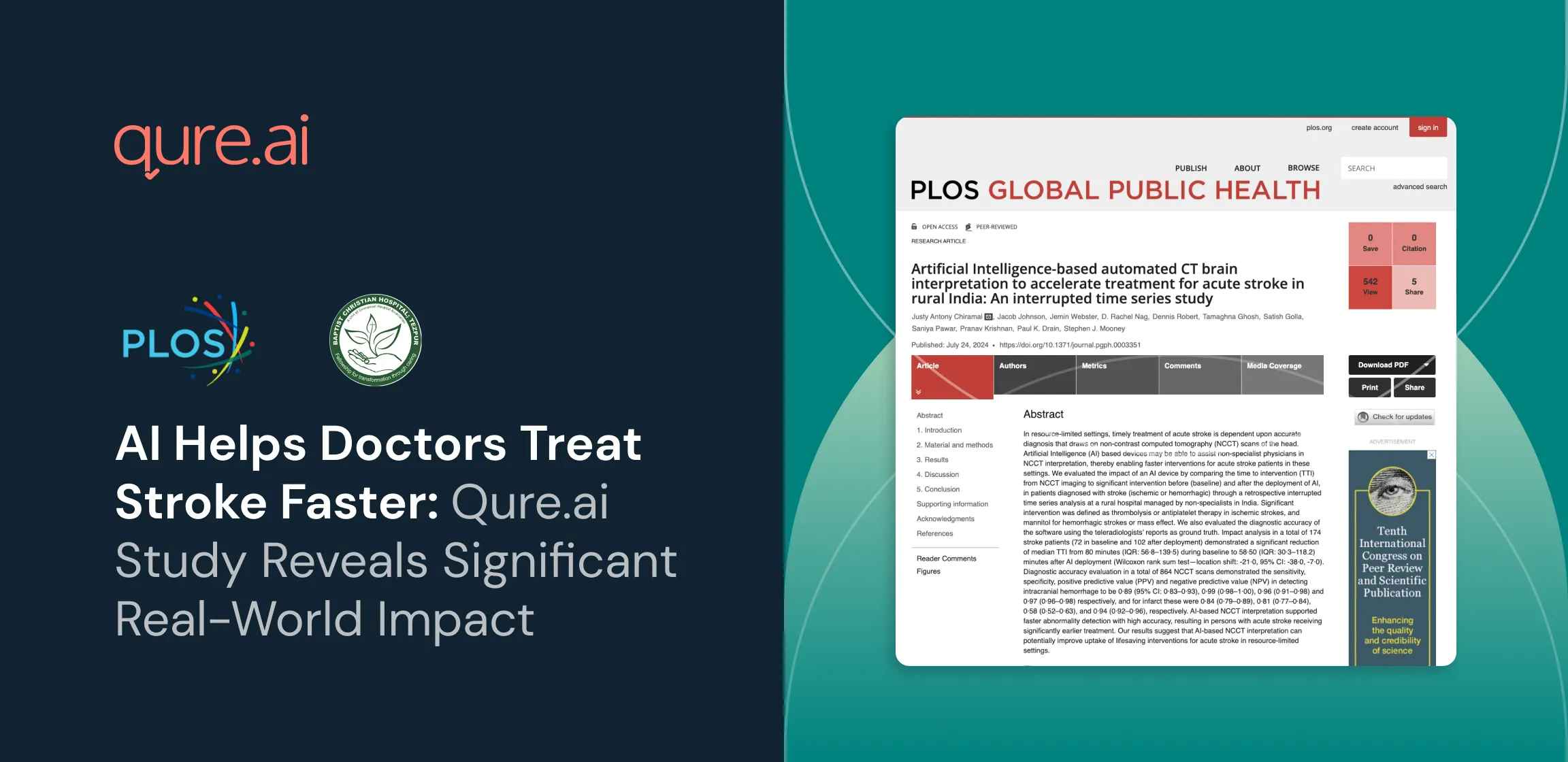Baptist Christian Hospital (BCH) Tezpur, a 130-bed charitable institution under the Emmanuel Health Association, operates without an in-house neurologist and relies on tele-radiology for NCCT scan analysis, often resulting in hours-long delays. The nearest comprehensive stroke center is 180 kms away in Guwahati. In collaboration with BCH, Qure.ai conducted a study exploring AI’s role in enhancing stroke diagnosis and treatment, particularly in remote or resource-limited settings.
Back
Challenges
Delayed Treatment: Before AI adoption, BCH faced significant delays in stroke diagnosis and interventions critical for patient survival and recovery.
Resource Constraints: Limited resources and the absence of specialist doctors often led to delayed decision-making and treatment.
Solution
Qure.ai’s AI-powered solution, qER, transformed stroke care at BCH by:
Faster stroke diagnosis: The AI quickly and accurately analyzed head CT scans, effectively identifying strokes and ruling out hemorrhages with high precision.
Empowering Non-Specialists: AI-powered stroke solution enabled non-specialist doctors to make faster, more confident treatment decisions.
Impact
187% Increase in Early Interventions: AI implementation led to a 187% increase in the proportion of patients treated within the Golden Hour, significantly improving survival rates.
27% Reduction in Time to Treatment: The AI reduced the time to intervention by 27%, enabling quicker treatment.
Improved Diagnostic Accuracy: qER achieved 97% accuracy in ruling out bleeds, expediting treatment decisions.
Conclusion
The integration of AI at BCH has revolutionized stroke care, leading to significantly better patient outcomes. This success story demonstrates AI’s potential to bridge healthcare gaps, especially in resource-constrained environments. BCH’s experience stands as a model for other institutions aiming to enhance stroke care through innovative technology.
